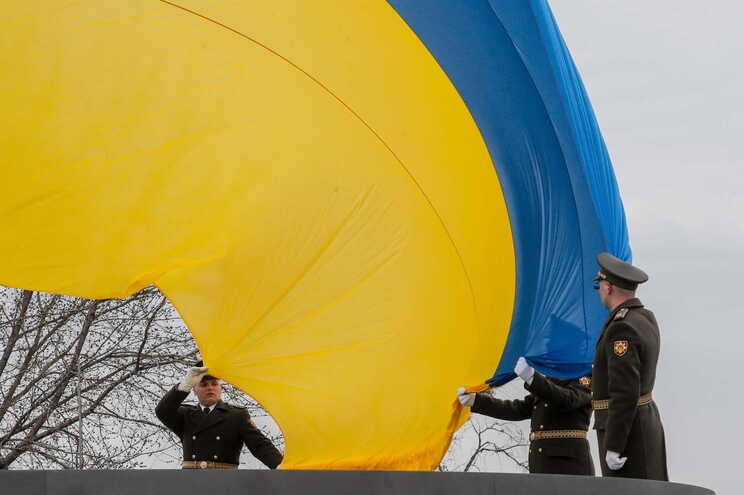The two-day summit in Jeddah was the second of its kind, after a similar forum in Copenhagen earlier this summer, and aims to work out key principles on how to end the war between Russia and Ukraine.
Ukraine’s President Volodymyr Zelenskiy said he hoped the initiative would lead to a “peace summit” of world leaders this autumn to endorse the principles, based on his own peace plan with 10 points for agreement.
The talks, which excluded Russia, were attended by the US, India, the EU and China’s special envoy for Eurasian affairs, Li Hui.
“We fear many disagreements and we hear different positions, but it is important that our principles are shared,” Li said before the meeting according to the Reuters agency.
The 10-point peace formula developed by Zelenskiy includes respect for Ukraine’s territorial integrity and sovereignty and restoration of UN principles and adherence to international law.
A source from the Ukrainian delegation told Al Arabiya and Al-Hadath news channels that the proposals were supported by several countries.
The meeting in Jeddah follows talks in Copenhagen in June, which were designed to be informal and without an official communique released. A Ukrainian source told The Guardian that the 10-point peace plan “received more support than in Copenhagen”.
An EU source said that China “has actively participated and been positive about the idea of a third meeting at this level”.
China’s involvement is seen as a major diplomatic prize – it had been invited to the Copenhagen talks in June but did not attend.
The official said there was agreement to set up working groups to develop details of key issues prominent in Zelenskiy’s 10-point peace formula, while a parallel group of ambassadors would continue technical work on the issues.
The working groups would investigate solutions related to global food security, nuclear security, environmental security, humanitarian aid, the release of prisoners of war and abducted children which would then “contribute to the future work of this group at the national security adviser level”, he said. the source.
In parallel, a separate group of ambassadors in Kiev would continue technical work.
The talks are aimed at finding a viable basis for a meeting of heads of state, with sources saying that the date is “still a little uncertain, but before the end of the year it was considered plausible”.
Saudi Arabia promoted its links to both sides in the war and positioned itself as a possible mediator.
Being a peace broker also gives Riyadh an opportunity to mend strained relations with its allies, especially the US, in light of the war in Yemen and the 2018 assassination of Saudi dissident and journalist Jamal Khashoggi.
The talks showed the “willingness of the kingdom to exercise its good offices to contribute to reaching a solution that results in permanent peace”, said the Official Press Agency of Saudi Arabia.
Organizers brought together three-fifths of the Brics countries, Brazil, India and South Africa, as well as other countries in the global South such as Indonesia, Mexico, Zambia and Egypt.
Saudi Arabia, the world’s biggest crude oil exporter, maintains good relations with China and Moscow in terms of oil policy, although tensions have arisen recently after Russia failed to adhere to the agreed reduction in production.
In May, the kingdom hosted Zelenskiy at an Arab summit, also in Jeddah, where he accused some leaders of “turning a blind eye” to the horrors of the Russian invasion.
US National Security Adviser Jake Sullivan led the Washington delegation to the Saudi city, a senior White House official said, but no official statement or summary has yet emerged.
The foreign policy adviser to the President of the European Council, Charles Michel, Simon Mordue, represented the EU.



